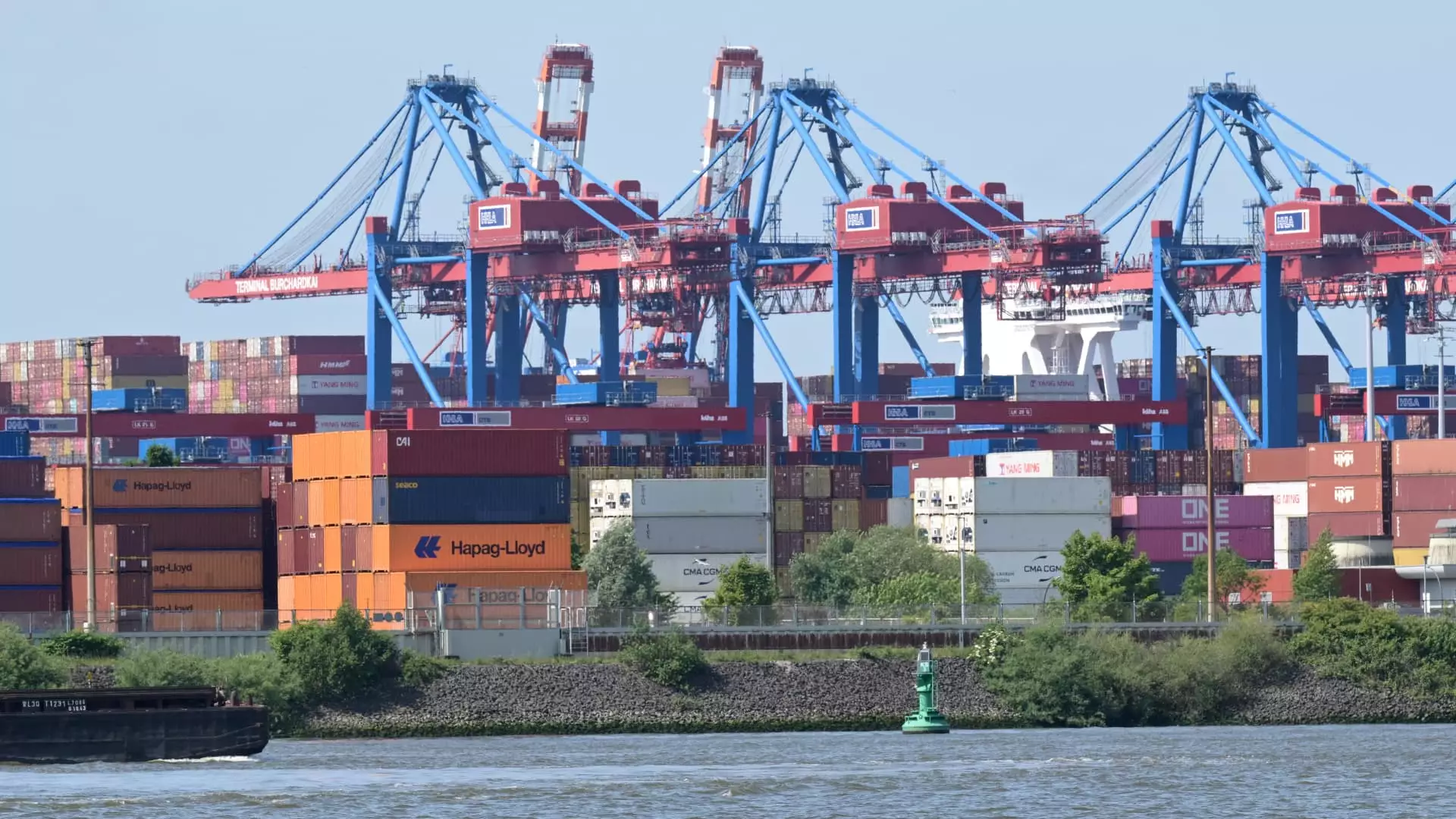The current negotiations between the United States and the European Union epitomize the fragile dance of global diplomacy under mounting pressure. With the looming threat of tariffs and retaliatory tariffs, the transatlantic alliance faces an unprecedented challenge that could reverberate well beyond trade figures, shaking the very fabric of international cooperation. These talks are less about economics and more about projecting power, asserting economic sovereignty, and shaping the future of global governance.
The impending showdown is set against a backdrop of mutual distrust—fuelled by nationalist rhetoric from Washington and a growing sense of economic vulnerability within the EU. The U.S. administration, motivated by a protectionist impulse, seeks to recalibrate what it perceives as an unfair trade relationship by leveraging tariffs as bargaining chips. Conversely, the EU, with its deep interdependence on American markets, is caught between resistance and capitulation, knowing that capitulating could mean giving up vital leverage or economic stability. Neither side truly seeks peace; both understand that their negotiations are a strategic battleground where national interests clash with global aspirations.
The Brooding Specter of Economic Dislocation
If the July deadline passes without a deal, the consequences could be catastrophically disruptive for industries on both sides of the Atlantic. For the U.S., tariffs on EU goods like automobiles, pharmaceuticals, and energy products threaten to inflate consumer costs and choke supply chains, sparking inflationary pressures at a time when economic recovery remains fragile. For Europe, retaliatory tariffs could penalize key U.S. exports and threaten the economic stability of sectors that are vital for their own growth and innovation.
Both parties seem aware of the potential fallout, but a troubling sense of brinkmanship prevails. The EU’s approach—aimed at securing a minimal agreement—reflects a desperation to avoid the worst while postponing difficult compromises. European officials are evidently resigned to negotiations ending with a political optics victory rather than substantive policy resolution. Ursula von der Leyen’s acknowledgment that a “detailed agreement” is “impossible” during the limited window highlights how far apart the two sides are; it underscores the likelihood that the final outcome might be a superficial compromise rather than solving any core issues.
This uncertainty not only destabilizes immediate economic expectations but threatens to erode long-term trust. Such erosion risks turning the transatlantic relationship into a series of transactional maneuvers rather than a stable partnership rooted in shared values of open trade and cooperation.
The Power Struggle and the Erosion of Multilateralism
Behind the veneer of trade talks lies a broader ideological struggle: the contest over who defines the future of global economic order. As the U.S. adopts a more assertive, unilateral posture, the EU’s traditional pursuit of multilateralism and rules-based trading systems appears increasingly compromised. This tension exposes weaknesses within the liberal international order that the West has long championed.
Critically, the inability to craft a comprehensive trade agreement in such a significant relationship exposes the limits of both Western leadership and the institutions meant to regulate global commerce. Key figures like Ursula von der Leyen and Maros Sefcovic acknowledge the political realities, but their openness about the failure to reach a detailed agreement reveals mounting frustration and disillusionment. The current climate fosters a dangerous precedence: a world where economic power is wielded with more abandon by populist governments skeptical of multilateral norms, threatening to fragment the global economy into competing blocs.
Furthermore, the US-EU deadlock underscores the need for a broader reassessment of our shared values. How can a partnership that once symbolized stability and progress now teeter on the brink of collapse? The answer lies in recognizing that the future of global trade depends less on tactical negotiations and more on reaffirming shared commitments to mutual benefits, fair rules, and long-term cooperation—an approach that advocates of center-left liberalism have long championed but are increasingly marginalized in today’s geopolitical climate.
The Path Forward: From Crisis to Opportunity?
Despite the gloomy outlook, there remains a sliver of hope, but only if stakeholders abandon zero-sum thinking. The current impasse exposes fundamental flaws that must be addressed if transatlantic relations are to be restored and strengthened. Instead of using tariffs as mere leverage, negotiations should pivot toward creating resilient frameworks—ones that reflect modern realities and shared commitments to climate, innovation, and social responsibility.
The danger, however, lies in complacency and the temptation to accept superficial agreements designed only to delay conflict. For the sake of long-term stability, the European Union and the United States need to rekindle their shared sense of purpose—redefining their relationship not as rivals, but as co-stewards of an increasingly interconnected world.
In the end, the ongoing trade negotiations serve as a sobering reminder that leadership in the 21st century is about more than economic dominance; it is about shaping a global consensus that respects diverse interests yet unites us around common goals. Whether this moment results in lasting cooperation or descending into further discord hinges on the ability of both sides to recognize these stakes—and to navigate the perilous waters of international diplomacy with foresight and resolve.

Leave a Reply